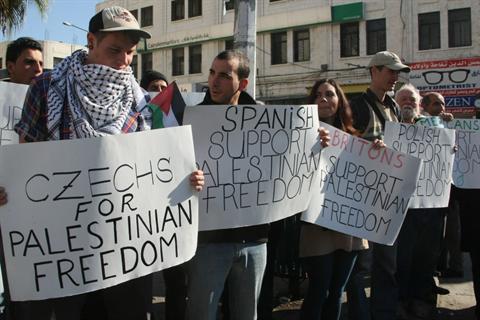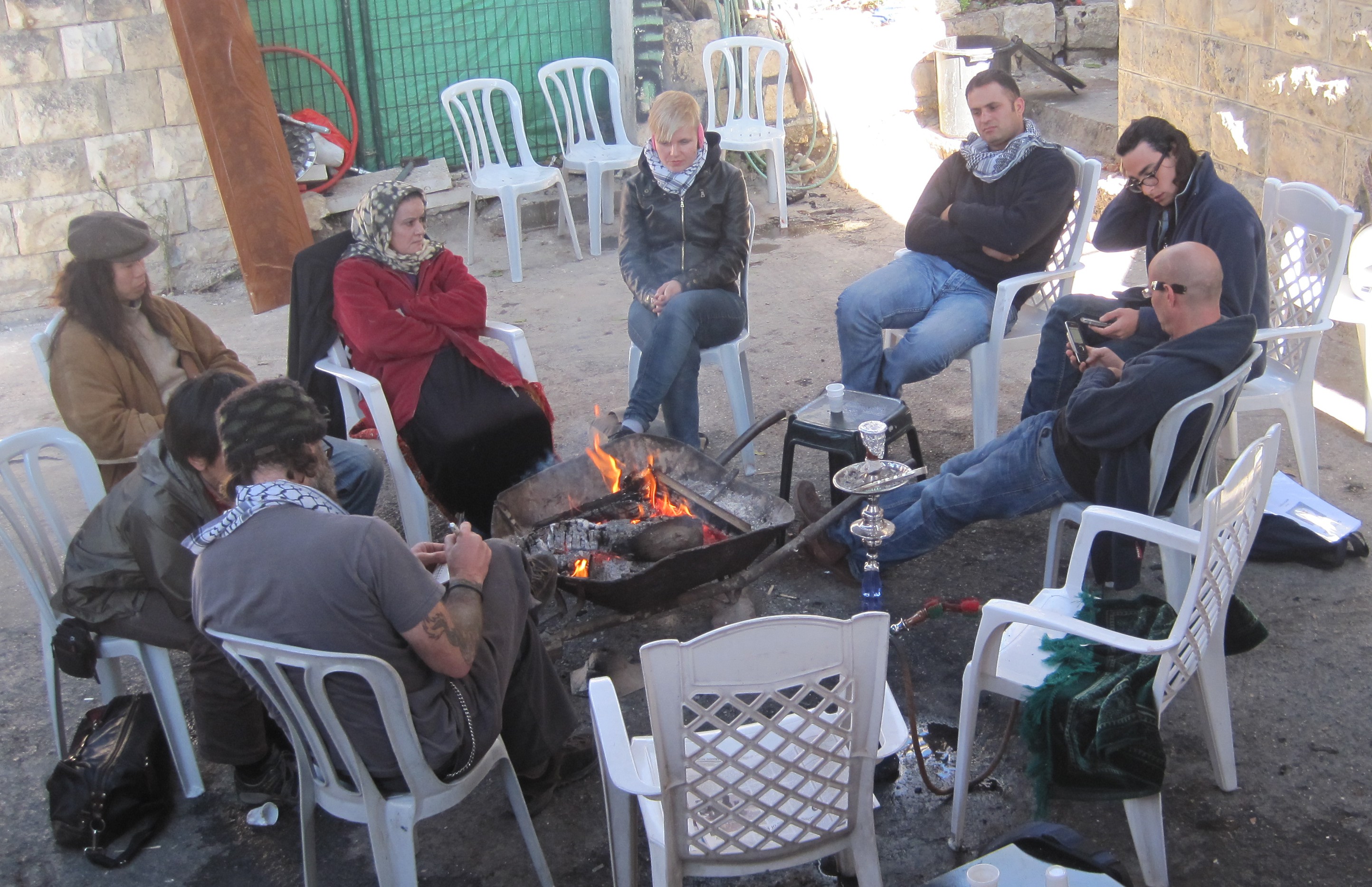Month: November 2011
-
‘A Needle in the Binding’: The legacy of Palestinian prisoner self-education in Israeli prisons
by Ben Lorber and Khalil Ashour 29 November 2011 | International Solidarity Movement, West Bank On the third floor of the Nablus Municipality Library, there sits a room of over 8,000 books set apart from the rest. Many of these books are very old and tattered; many of them, in lieu of a normal face,…
-
Nablus comes together for International Solidarity Day
by Wahed Rejol 29 November 2011 | International Solidarity Movement, West Bank Today in the Occupied West Bank, Palestinians and internationals gathered in Nablus to participate in an international day of support for Palestine. In 1977 the United Nations General Assembly voted to declare November 29 as the The International Day of Solidarity with the Palestinian…
-
Jerusalem: Sumarin family receives news that eviction is temporarily delayed
by Wahed Rejol 28 November 2011 | International Solidarity Movement, West Bank Today in the Wadi Hilweh neighborhood of Silwan, the Sumarin family awaited a ruling from Israeli court on the pending eviction from their home. Israeli news reported this week that the current eviction set for this week had been delayed. But according to…


